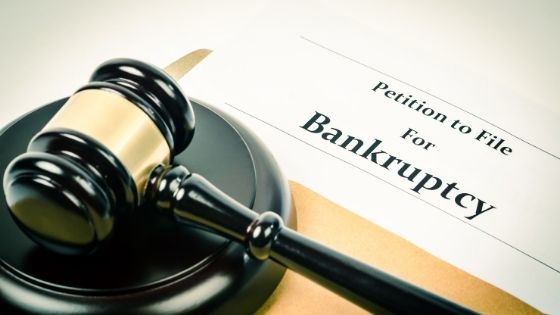When you start a business more often than not, you do not think that you will ever get to the point of filing for bankruptcy. However, unforeseen and unexpected events can occur, which will make it necessary for you to file for bankruptcy. You need to begin the bankruptcy filing process to reduce the effect on customers, employees, family, business partners, and yourself. Here are some pointers that you can use in case you want to file for bankruptcy:


1. The four categories of bankruptcy filing
You need to be informed that there are four types of bankruptcy filing filed in forms known as chapters. They include:
- Chapter 7, which is liquidation
- Chapter 13, which involves adjusting debts of a person with regular income
- Chapter 11, which involves reorganizing debts by businesses
- Chapter 12 requires adjusting a family’s debts farmer with steady annual income
2. Chapter 7 and chapter 13 bankruptcy filing
You can say that chapters 7 and 13 are usually the main options people have when deciding to file for the bankruptcy process. Chapter 7 is termed as a liquidation bankruptcy, which can release most or all of your arrears. During this bankruptcy filing process, you can retain some assets; however, you might have to liquidate some valuable assets.
On the other hand, chapter 13 involves coming up with a payment strategy to repay creditors over time. The entire procedure can take three to five years. Individuals with a steady income who can make carry out monthly payments are suitable for this option.
3. Bankruptcy is not free
The majority of individuals get surprised when they decide to file for bankruptcy because the procedure is not free. You can incur a very high cost when going through the process because you need to hire a lawyer. Most lawyers charge by hours. Therefore, this could mean that your price can increase, especially if your case is complicated and you are required to cater for others fees such as court costs.
You need to know that the rate for filing the chapter 7 bankruptcy is lower than that of chapter 13 because the procedure can take several years. Nevertheless, you can opt to use the help of a bankruptcy lawyer in New Jersey or your particular locale. They work to help their clients in bankruptcy cases and commercial disputes, including loan modification and foreclosure defense.
When you choose to file for the process, you will most likely not think of the non-monetary costs you will have to incur later. Your credit rate score can be affected to the extent that your possibility of getting a loan or accessing credit will be challenging. Therefore, you need to ensure that you seek advice from a financial advisor on the way forward.
4. Bankruptcy will not cause all your debts to disappear
In some instances, filing for the bankruptcy process may be the appropriate option to partake. Nonetheless, the notion that all obligations and debts will disappear is not true at all.
For instance, some debts cannot be waived during the bankruptcy filing, such as real estate liens, student loans, child support, specific luxury items, taxes, and alimony. You need to know that you must attend an assembly of creditors meeting before finalizing the bankruptcy filing process.
You find that during this meeting, creditors have the chance to refuse the cancellation of any of their debts. In scenarios where creditors win the case, you may owe them money, and it may become a legal requirement for you to repay the creditors. Therefore you need to be smart enough and get advice from a professional before starting the bankruptcy filing process. You will be able to get a clear understanding of what to do and make the best decision for you and your business.
Conclusion
By reading the tips discussed above, you will have the knowledge needed to understand what your small business will require and deal with if you decide to file for bankruptcy. Additionally, you will be able to know what to do and the pros and cons of going through the process. Therefore ensure you consult or seek advice from a professional such as a financial advisor or a lawyer when in doubt.









